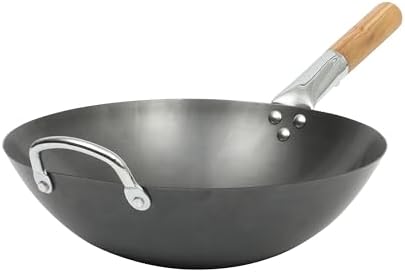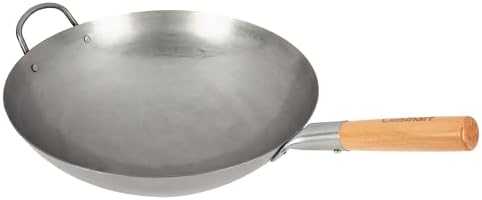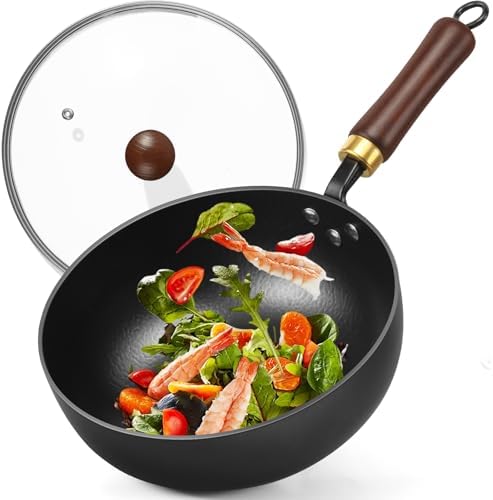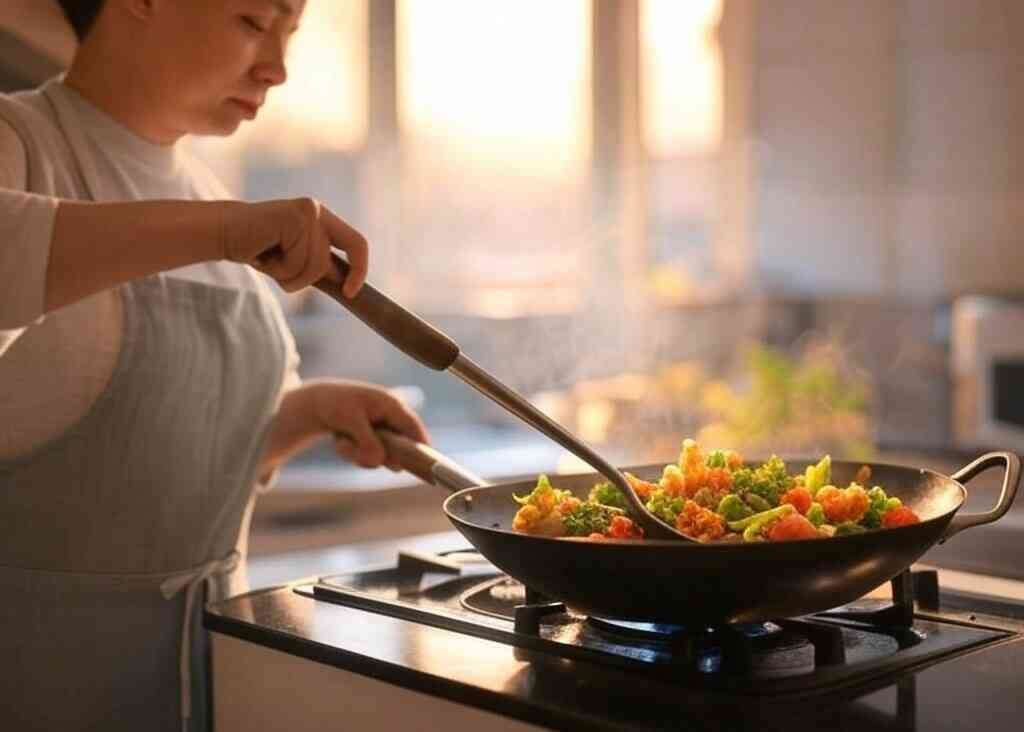One of the decisions you may have to make when purchasing a wok is whether to purchase a pre seasoned or not. Pre seasoned woks are often marketed as being easy to use and for starters, but are they indeed worth it? Let’s examine their pros and cons.
Pros of Pre Seasoned Woks: Ready to
1. Ready to Use Out of the Box: cook straight
One of the best things about a pre seasoned wok is that you can cook straight away once you bring it out of the box. You don’t have to spend time seasoning the wok first by heating the wok and then putting on multiple layers of oil. This is a definite advantage for beginners or time strapped individuals.
2. Less Possibility of Premature Rusting: cosmetic protective
The factory applied seasoning makes a cosmetic protective coating to the wok. That might reduce the risk of rust formation on the first few uses — very convenient in humid climates where rust is always a threat.
3. Beginners’ Maintenance Ease: more forgiving
Pre seasoned woks are more forgiving in the beginning of use. If you’re still new to high heat cooking, initial seasoning will not let food stick or burn as you build confidence.
4. Ideal for Gifts or Beginners: plug and
If you’re shopping for a wok as a gift or for a person who does not have the time or experience to season a wok properly, pre seasoned woks provide a plug and play experience.
Cons of Pre Seasoned Woks: Unclear Seasoning
1. Unclear Seasoning Ingredients: manufacturers rarely
One downside is that manufacturers rarely disclose which oils or methods were used during factory seasoning. If you’re health conscious or have allergies, this can be a concern.
2. Uneven or Poor Quality Coating: flaking or
Factory seasoning is often applied in bulk and may lack the evenness of a hand seasoned wok. Some parts may flake or wear off more quickly, requiring re seasoning earlier than expected.
3. Slower Patina Development: patina finish
A healthy wok patina — that natural non stick finish that develops over time — develops best with regular home seasoning. Pre seasoned finishes do the opposite and actually hinder the process, making it harder to develop a durable layer of seasoning.
4. False Sense of Durability: maintenance free
Other consumers falsely believe that “pre seasoned” equals “maintenance free,” and that just isn’t true. Pre seasoned woks still require oiling after use and light cleaning. Proper maintenance can still result in rust or lesser performance if not followed through.
Pro Tip: Still Be
Even if your wok is pre seasoned, it’s usually still a good idea to do a single round of seasoning yourself. This reinforces the layer they put on and will yield longer life. Factory seasoning is like a head start — not a complete substitute for normal maintenance.
Real Life Use Case: achieve improved
The majority of the users say that factory pre seasoned woks are usable for basic stir frying but were forced to re season the pans to achieve improved performance. However, for occasional cooks or those who cook a wok only from time to time, factory seasoning could be satisfactory.
Final Verdict: your experience
If you would like a convenient way to start with wok cooking, a pre seasoned wok might be a helpful option. However, if you prefer having more control of your cookware surface or you’re an experienced home cook, seasoning your own wok might be the better option. Take into consideration your experience level, available time, and frequency of cooking when making a decision.
read more: How to Identify a High-Quality Wok: Expert Buyer’s Guide












[…] shopping for a wok, one of the most important design features to consider is the bottom shape flat or round. This […]
[…] Carbon steel woks are simple kitchen staples. They are best-loved utensils by professional cooks and those who enjoy cooking. They are different from stainless steel or non-stick woks. […]
[…] to regular pans. This makes it best suited for high-heat cooking techniques such as stir-frying. Woks usually have rounded and deep sides. These allow food to be easily tossed and stirred about. This stops […]